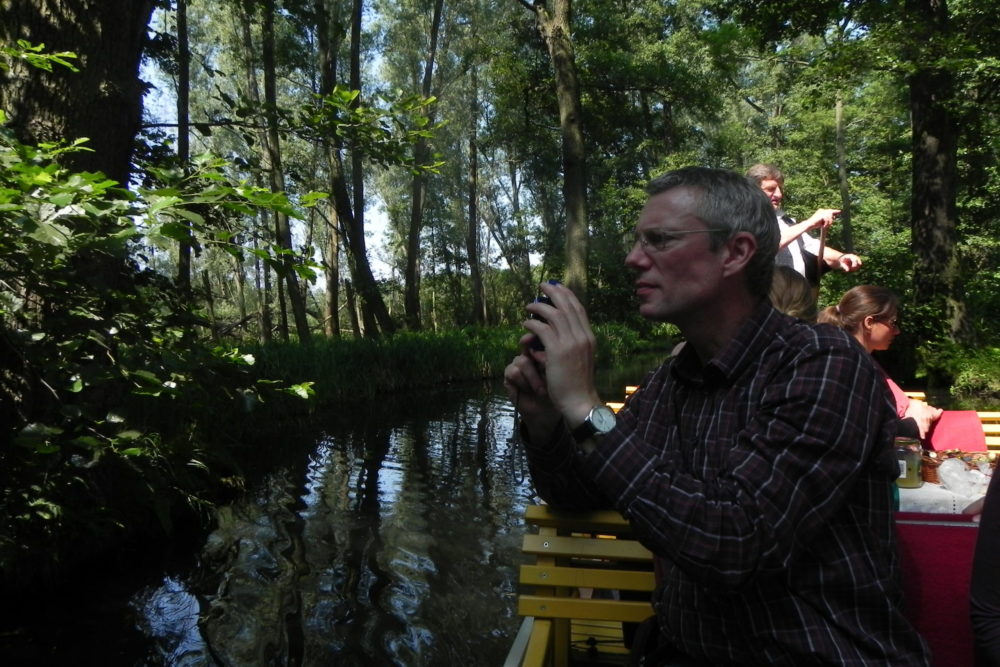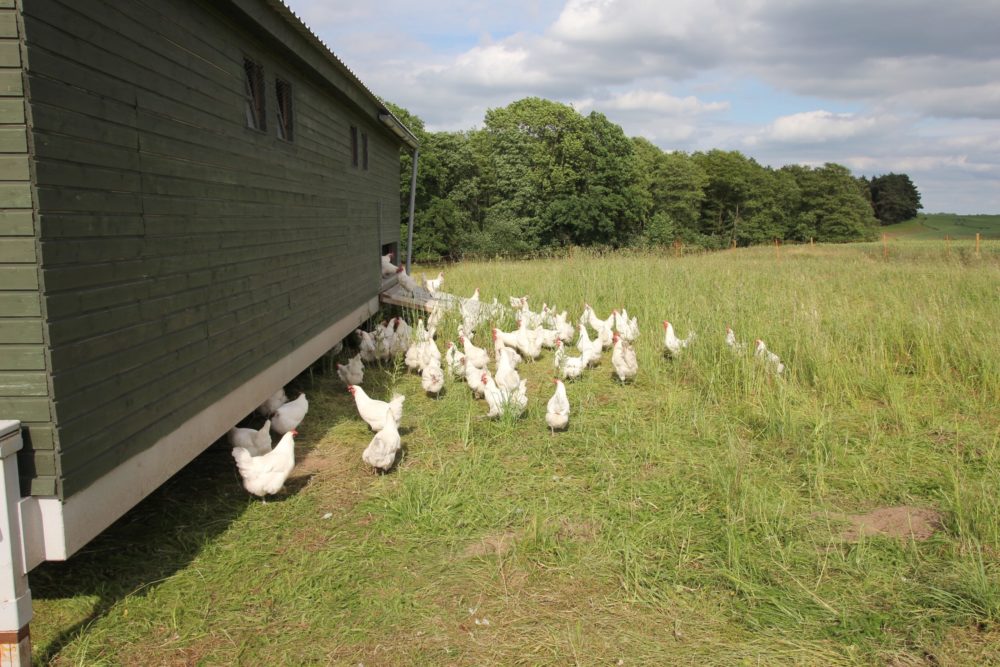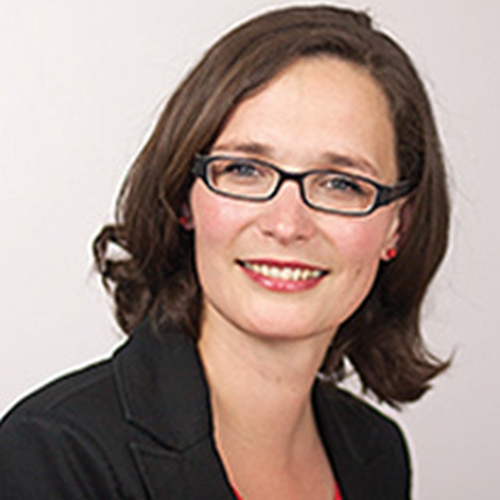Past Project
Adressing wicked sustainability problems through sustainability innovations requires to improve our knowledge on the coordination of sustainability innovation processes. This is a core challenge to be overcome for a more sustainable land management. Yet, empirical knowledge on innovation processes in-the-making is limited. Actors from different disciplinary and professional fields need to cooperate and co-create new knowledge and practices across value chains, cultural landscapes or regions. Small and medium sized enterprises, organisations and administrative units have limited ressources thus facing challenges to take up and integrating innovative ideas from actors from different fields into so called system solutions. Thus, sustainability innovations often remain in a niche despite the societal need for their potential sustainability contributions.
The transdisciplinary innovation group ginkoo accompanied two exemplary innovation cases that adress two main sustainability challenges in the field of land use. The consortium analysed the preconditions for innovation management from different socio-economic perspectives, that are typically relevant, but ususally treated singulary and sub-ordinated in collaborative research approaches.
The first case study adresses ethical and sustainability questions in animal husbandry and consumption systems by accompanying the regional initiative of dual purpose breeds ‘ei care’. The second case study accompanied actors developing novel solutions for biodiversity friendly management of wetland meadows in the biosphere reserve Spreewald.
The specific empirical insights and their interrelation with regard to innovation management challenges were integrated by the consortium to an innovation management model. The ginkoo innovation navigator is a toolbox for the development of sustainable innovations. The tools are designed to aid efficient cooperation and communication, to facilitate agreement on sustainable solutions and increase acceptance of the innovation. They also help to make knowledge accessible to different groups of actors, assist in assessing the chances of success and conceiving appropriate marketing strategies for the innovation.
With the ginkoo innovation navigator, coordinating actors can organise their innovation process by (a) reflecting and planning, (b) working on ones own own or in a team, and (c) discussing and coordinating.
The project was funded by the BMBF (2014-2019).
Output
Peer reviewed articles
Busse, M., Siebert, R. (2018a): Acceptance studies in the field of land use—A critical and systematic review to advance the conceptualization of acceptance and acceptability. Land Use Policy, 76 (2018), pp. 235- 245, https://doi.org/10.1016/j.landusepol.2018.05.016
Busse, M., Siebert, R. (2018b): The role of consumers in food innovation processes. European Journal of Innovation Management, 21.1 (2018), pp. 20-43, https://doi.org/10.1108/EJIM-03-2017-0023
Busse, M., Heitepriem, N., Siebert, R. (2019a): The Acceptability of Land Pools for the Sustainable Revalorisation of Wetland Meadows in the Spreewald Region, Germany. Sustainability, 11, 4056; https://doi.org/10.3390/su11154056
Busse, M., Siebert, R., Heitepriem, N. (2019b): Acceptability of innovative biomass heating plants in a German case study—a contribution to cultural landscape management and local energy supply. Energy, Sustainability and Society, https://doi.org/10.1186/s13705- 019-0215-2
Busse, M., Kernecker, M.L., Zscheischler, J., Zoll, F., Siebert, R. (2019c): Ethical Concerns in Poultry Production: A German Consumer Survey About Dual Purpose Chickens. J Agric Environ Ethics (2019), https://doi.org/10.1007/s10806-019-09806-y
König, B., Lundie, S., Kuntosch, A., Wortmann, L. (2015): Anforderungen an Managementverantwortliche in der Planungsphase von inter- und transdisziplinären Verbundvorhaben – eine Reflexion. Schwerpunktheft “Managementverantwortliche inter- und transdisziplinärer Verbünde” (Special issue “Managers of inter- and transdisciplinary research groups”) der Zeitschrift “Forschung. Politik – Strategie – Management”(Gast-Hrsg. R. Defila, A. Di Giulio, M. Scheuermann), Heft Nr. 3+4/2015, UniversitätsVerlagBielefeld.
Jaeger-Erben, M., Nagy, E., Schäfer, M., Süßbauer, E., Zscheischler, J. (2018): Von der Programmatik zur Praxis – Plädoyer für eine Grounded Theory transformationsorientierter Forschung. GAIA 27/1: 117–121.
Schäfer, M., König, B. Kuntosch, A., Richter, B., Schaal, T. (2020): Management von Innovationsprozessen für nachhaltige Entwicklung. Der ginkoo Innovationsnavigator. Ökologisches Wirtschaften 3.2020 (35). https://doi.org/10.14512/OEW35034
Schäfer, M. (2019): Establishing ethical organic poultry production: a question of successful cooperation management? Agriculture and Human Values, (Symposium/Special Issue), pp. 1-13, https://doi.org/10.1007/s10460-019-09915-4
Schäfer, M., König, B. (2018): The role of cooperation for sustainability innovations in the agriculture and food sector: Special Issue of the 13th European International Farming Systems Association (IFSA) Symposium, Greece; International Journal of Agricultural Extension, 2018.
Zoll, F., Diehl, K., Siebert, R. (2019a): Integrating Sustainability Goals in Innovation Processes: Applying a Decision Support Tool in a Dual-Purpose Chicken Case Study. Sustainability 2019, 11, 3761; https://doi.org/10.3390/su11143761
Zscheischler, J.; Busse, M.; Heitepriem, N. (2019): Challenges to Build up a Collaborative Landscape Management (CLM)—Lessons from a Stakeholder Analysis in Germany. In: Environmental Management. Online First. https://doi.org/10.1007/s00267-019-01205-3
Book chapters
FELD-Magazin des ZALF (2018): Alle in einem Boot. (http://www.zalf.de/de/aktuelles/Feld- Magazin/1-2018/Seiten/default.aspx)
Andraschko, F.; Domin, T.; Neubourg, U.; Schäfer, M.; Siebert, R.; Wille, T.; Wortmann, L. (2019): Mit Pionieren arbeiten. In: Schön, S./Eismann, C./Wendt-Schwarzburg, H. u.a. (Hg.): Nachhaltige Landnutzung managen. Akteure beteiligen – Ideen entwickeln – Konflikte lösen. Bielefeld 2019. https://doi.org/10.3278/6004699w
Blask, K. Busse, M.; Etterer, F., Heitepriem, N.; Herrmann, P.; Jennicks, S. (2019): Regionale Landmanagerin werden. In: Schön, S./Eismann, C./Wendt-Schwarzburg, H. u.a. (Hg.): Nachhaltige Landnutzung managen. Akteure beteiligen – Ideen entwickeln – Konflikte lösen. Bielefeld 2019. https://doi.org/10.3278/6004699w
Busse, M., Heitepriem, N. (2020): Integratives Kulturlandschaftsmanagement am Beispiel Spreewald. Schmidt, U. Eterer, F. (Hrsg): In Kulturlandschaftsmanagement in der Praxis. Makeln – Bewirtschaften – Zeigen. Oekom Verlag
Bredemeier, B., Drexelmeier, S., von Haeuble, J., Herrmann, S., König, B., Pusch, C., Schneider, J. (2019): Gemeinsame Entscheidungsgrundlagen schaffen. In: Schön, S., Eismann, C. Wendt-Schwarzburg, H., Ansmann, T. (Hg.) (2019): Nachhaltige Landnutzung managen. Akteure beteiligen – Ideen entwickeln – Konflikte lösen. wbv, Bielefeld, S. 63-74.
Böhm, C. Etterer, F., Kempa, D., König, B., Matthes, G., Schaffrin, A., Schindele, S. Schneider, J., von Streit, A. (2019): Land nachhaltig nutzen. In: Schön, S., Eismann, C. Wendt- Schwarzburg, H., Ansmann, T. (Hg.) (2019): Nachhaltige Landnutzung managen. Akteure beteiligen – Ideen entwickeln – Konflikte lösen. wbv, Bielefeld, S. 13-24.
Nölting, B., König, B. (2019): Management ist nicht alles. Systemlösungen brauchen „radikale“ Kritik und Reflexion – Ein Zwischenruf. In: Schön, S., Eismann, C. Wendt-Schwarzburg, H., Ansmann, T. (Hg.) (2019): Nachhaltige Landnutzung managen. Akteure beteiligen – Ideen entwickeln – Konflikte lösen. wbv, Bielefeld, S. 75-78.
Nölting, B./ Schäfer, M. (2020): Framing cooperation as a key element for sustainable agriculture and food production: an analytical framework. ZTG-Discussion Paper Nr. 43/2020
Schäfer, M., Nölting, B., & Schermer, M. (2016): Regionale Entwicklung. In: Freyer, B. (Hrsg): Ökologischer Landbau. Grundlagen Wissensstand und Herausforderungen. Bern: Haupt Verlag, S. 205-217.
Zscheischler, J., Heitepriem, N., Gille, F., Schäfer, M. (2018): Den Spreewald erhalten. In: LandinForm 2, S. 46-47.
Project reports
König, B. (2020). Gemeinsamer Abschlussbericht. (unveröffentlicht)
Busse, M., Zoll, F., Siebert, R. (2019d): Konsumentenbefragung zur Akzeptanz von ei care- Produkten im Berliner Bio-Lebensmitteleinzelhandel – Zusammenfassung.
Busse, M., Siebert, R. (2019a): Innovationsworkshop zum Thema Zweinutzungshuhn – Zusammenfassung.
Busse, M., Siebert, R. (2019b): Konsumentenbefragung zu ethischen Aspekten in der Geflügelhaltung – Zusammenfassung
Busse, M., Siebert, R. (2019c): Akzeptanz als veränderlicher Prozess. Einbettung der Akzeptanzanalysen in das Landschaftsentwicklungskonzept Spreewald. Zusammenfassung
Busse, M., Heitepriem, N., Siebert, R. (2019): Einstellungen der Landwirte zur thermischen Verwertung von Landschaftspflegematerial im Spreewald – kurze Zusammenfassung.
Busse, M., Fienitz, M., Fienitz, M., Siebert, R. (2019): Leitfaden zum Tool ,Akzeptanz strategisch steigern‘ – ein Onlinetool fürs nachhaltige Landmanagement. In: ginkoo Projektberichte, Humboldt-Universität zu Berlin. https://doi.org/10.18452/20898
Busse, M., Zscheischler, J., Heitepriem, N., Siebert , R. (2019): Die Kulturlandschaft Spreewald undihrErhaltdurchdasInstrumentEntwicklungspflegepool.In: ginkooProjektberichte, Humboldt-Universität zu Berlin. https://doi.org/10.18452/20901
Gille, F., Zscheischler, J., Schäfer, M., Heitepriem, N. (2019): Leitfaden für die Einbindung Freiwilliger in die Öffentlichkeitsarbeit – eine Orientierungshilfe für Bürgerstiftungen. In: ginkoo Projektberichte, Humboldt-Universität zu Berlin. https://doi.org/10.18452/19714
Herle, F.B., Hausy, C., Kilian J. (2017a): Erfolgsfaktoren der Stadtmarketingrunde „Wir für Lübbenau“ als Grundlage für Innovationsprozesse im nachhaltigen Landmanagement. https://doi.org/10.18452/19716
Herle, F.B., Hausy, C. (2019a): Grobkalkulatorische Szenarien zu Einnahmen und Ausgaben für partizipativ entwickelte Koppelprodukte zwischen Tourismus und Kulturlandschaft im Biosphärenreservat Spreewald In: ginkoo Projektberichte, Humboldt-Universität zu Berlin. https://doi.org/10.18452/20905
Herle, F.B., Hausy, C. (2019b): Explorative Analyse zum Status Quo des Volunteering zwischen Naturschutz, Freizeit, Ehrenamt, touristischem Erlebnis und Umweltbildung. In: ginkoo Projektberichte, Humboldt-Universität zu Berlin. https://doi.org/10.18452/20896
Hausy, C., Herle, F.B. (2018): Perspektiven der Wertekommunikation zur nachhaltigen Kulturlandschaftsentwicklung durch touristische Finanzierungsmechanismen in Lübbenau/ Spreewald. doi.org/10.18452/19718
Herle, F.B., Hausy, C., Kilian J. (2017b): Partizipative Entwicklung von Koppelprodukten zwischen Tourismus und Kulturlandschaft im Biosphärenreservat Spreewald. https://doi.org/10.18452/19717
Herle, F.B., Hausy, C. König, B. (2019): Nachhaltige Kulturlandschaftsentwicklung durch touristische Finanzierungsinstrumente. Mit Praxisbeispielen erfolgreicher Zusammenarbeit und Tipps zur Gästemotivation. In: ginkoo Projektberichte, Humboldt- Universität zu Berlin. https://doi.org/10.18452/19715
König, B., Schäfer, M., Schaal, T., Kuntosch, A., Richter, B. (2019): Nachhaltige Innovationen managen – der ginkoo-Innovationsnavigator. ginkoo Projektberichte, Humboldt- Universität zu Berlin. https://doi.org/10.18452/20895
König, B., Heitepriem, N. Kuntosch, A., Busse, M., Schaal, T., Zoll, F., Herle, F., Schäfer, M., Siebert, R., Diehl, K., Skroblin, J.-H., Petschick, M. (2019): Innovative Lösungen für eine nachhaltige Kulturlandschaftsentwicklung im Spreewald. Ergebnisse des ginkoo- Projekts. ginkoo Projektberichte, Humboldt-Universität zu Berlin. https://doi.org/10.18452/20902
Kuntosch, A. (2019): Roadmap Wissensmanagement. Wissen als Ressource für Innovationsprozesse im nachhaltigen Landmanagement nutzbar machen. In: ginkoo Projektberichte, Humboldt-Universität zu Berlin, https://doi.org/10.18452/20894
Richter, B., Busse, M., Kuntosch, A., Zoll, F., Schäfer, M., Siebert, R., Diehl, K., König, B. (2019): Innovative Lösungen für eine nachhaltige, ethischere Geflügelhaltung. Ergebnisse des ginkoo-Projekts. In: ginkoo Projektberichte, Humboldt-Universität zu Berlin. https://doi.org/10.18452/20899
Richter, B., König, B. (2019): Marketing-Manual für das nachhaltige Landmanagement. Integration und Umsetzung von Marketing in Innovationsprozessen. In: ginkoo Projektberichte, Humboldt-Universität zu Berlin. https://doi.org/10.18452/20897
Schäfer, M.; Nölting, B.; Schaal, T.; Zscheischler, J. (2019): Leitfaden Kooperationsmanagement für Nachhaltigkeitsinnovationen. ginkoo Projektberichte, Humboldt-Universität zu Berlin. https://doi.org/10.18452/20900
Zscheischler, J., Heitepriem, N., Gille, F., Schäfer, M. (2018): Den Spreewald erhalten. In: LandinForm 2, S. 46-47.
Data sets
Busse, M., Kernecker, M., Siebert, R. (2019): Data sets from a German consumer survey on ethics in poultry production https://www.doi.org/10.4228/ZALF.DK.106
Project Team
Bettina König, Principal Investigator
Anett Kuntosch, Knowlegde management in sustainability innovation processes
Dr. Beate Richter, Sustainability marketing in innovations processes
Lukas Wortmann, Coordinator, Internal Evaluation Concept





